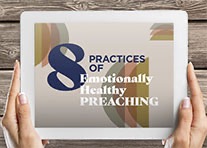Are Emotionally Healthy Relationships Possible?
When Geri and I became committed followers of Christ, we learned about spiritual disciplines – Bible Study, worship, giving, community, prayer, spiritual gifts, etc. We immersed ourselves in the best of Christian training and discipleship for years. It was always confusing, however, that people in the church were supposedly growing in love for God, but they clearly weren’t growing into greater love for people. We couldn’t figure out why people with “great passion” for Christ and Scripture were often defensive, judgmental, critical, unapproachable and unsafe to be around. (Sadly, this was often true for us as well.) We gradually acknowledged a painful truth – the quality of love inside the church was not really that different from the quality of love among people outside the church. How could this be, especially when Jesus repeatedly linked love for God with love for others as the essence of true spirituality? The answer lies, I believe, in. Read more.





